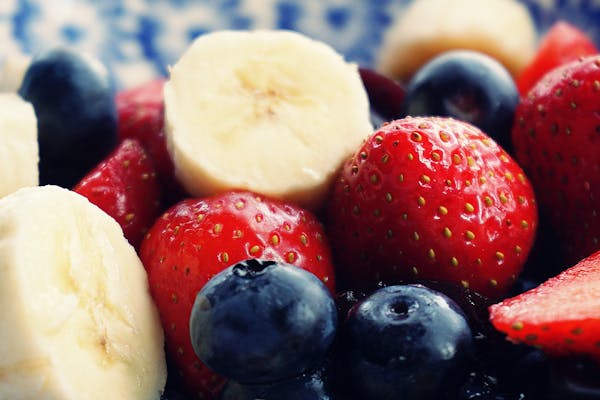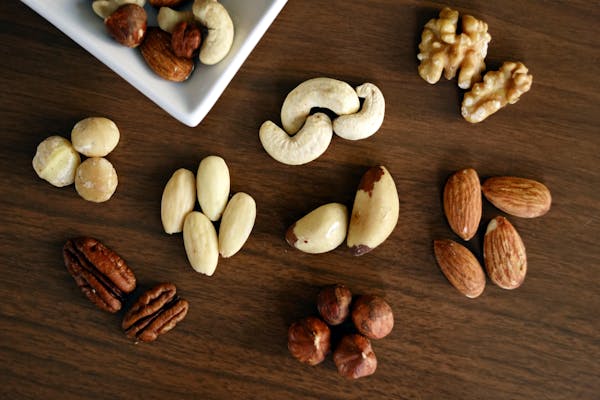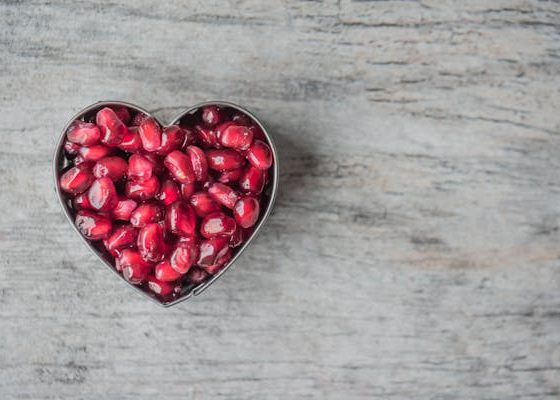
In today’s fast-paced world, prioritizing health often takes a backseat to busy schedules and convenience foods. However, the importance of a nutritious diet cannot be overstated. What we eat directly impacts our energy levels, immune function, and overall well-being. By incorporating a variety of nutrient-rich foods into our daily meals, we can support our bodies in functioning optimally and promote longevity. Here’s a detailed guide to some of the best healthy foods to include in your daily diet for maximum health benefits.
List of the Best Healthy Foods You Can Eat Daily

- Leafy Greens: Incorporating a variety of leafy greens, among the best healthy foods, into your daily diet can provide a wide range of health benefits. Leafy greens are nutritional powerhouses packed with vitamins, minerals, and antioxidants. Spinach, kale, Swiss chard, and collard greens are just a few examples of these nutrient-dense greens. They are low in calories but high in fiber, promoting digestive health and aiding in weight management. Additionally, leafy greens are rich in vitamins A, C, and K, as well as folate and iron, essential for maintaining healthy bones, skin, and immune function.
- Berries: Berries are not only delicious but also incredibly nutritious, ranking among the best healthy foods. Strawberries, blueberries, raspberries, and blackberries are rich in antioxidants called flavonoids, which have been linked to a reduced risk of chronic diseases such as heart disease, cancer, and diabetes. Berries are also high in fiber and vitamin C, supporting digestive health and immune function. Including a serving of berries in your daily diet, whether fresh or frozen, is an easy way to boost your intake of essential nutrients and promote overall health.
- Fatty Fish: Fatty fish such as salmon, mackerel, sardines, and trout are among the best healthy foods you can incorporate into your diet. They are excellent sources of omega-3 fatty acids, essential fats that our bodies cannot produce on their own. Omega-3s are crucial for brain health, reducing inflammation, and supporting heart health. Regular consumption of fatty fish has been associated with a lower risk of heart disease, depression, and cognitive decline. In addition to omega-3s, fatty fish are also rich in high-quality protein, vitamin D, and selenium, making them an ideal choice for a healthy diet.
- Whole Grains: Whole grains are among the best healthy foods, as they are unrefined grains that retain their bran and germ, making them rich in fiber, vitamins, minerals, and antioxidants. Examples of whole grains include quinoa, brown rice, oats, barley, and whole wheat. Unlike refined grains, which have been stripped of their nutrient-rich components, whole grains provide sustained energy, regulate blood sugar levels, and support digestive health. Including a variety of whole grains in your daily diet can help reduce the risk of chronic diseases such as heart disease, type 2 diabetes, and certain cancers.
- Nuts and Seeds: Nuts and seeds are nutrient-dense foods rich in the best healthy foods like almonds, walnuts, chia seeds, flaxseeds, and pumpkin seeds. They are packed with healthy fats, protein, fiber, vitamins, and minerals. Nuts and seeds are particularly rich in monounsaturated and polyunsaturated fats, which have been shown to improve heart health and lower cholesterol levels. They are also packed with antioxidants, which help fight inflammation and oxidative stress in the body. Incorporating a handful of nuts or seeds into your daily diet as a snack or adding them to salads, yogurt, or smoothies can provide a wide range of health benefits.
- Legumes: Legumes, including beans, lentils, chickpeas, and peas, are affordable, versatile, and nutrient-rich foods that are a staple in many cuisines around the world. They are excellent sources of plant-based protein, fiber, vitamins, and minerals, making them an essential component of a healthy diet. Consuming legumes regularly can help lower cholesterol levels, regulate blood sugar levels, and promote healthy digestion. Additionally, legumes are low in fat and high in complex carbohydrates, providing sustained energy and keeping you feeling full and satisfied. Including these legumes in your diet is one of the best healthy foods choices you can make.
- Yogurt and Fermented Foods:
- Colorful Vegetables:
Benefits of Eating the Best Healthy Foods:

Eating a diet rich in the best healthy foods offers numerous benefits for overall health and well-being. Here are some of the key advantages:
- Improved Nutrient Intake: Healthy foods such as leafy greens, berries, fatty fish, whole grains, nuts, seeds, legumes, yogurt, fermented foods, and colorful vegetables are packed with essential nutrients including vitamins, minerals, antioxidants, and fiber. Consuming these foods regularly ensures that your body receives the nutrients it needs to function optimally.
- Enhanced Digestive Health: Many healthy foods, particularly those high in fiber such as whole grains, legumes, and vegetables, promote digestive health by supporting regular bowel movements and maintaining a healthy gut microbiome. Fermented foods like yogurt and kimchi contain probiotics, which help balance the gut bacteria and improve digestion.
- Stronger Immune System: Nutrient-rich foods provide the vitamins, minerals, and antioxidants necessary to support a robust immune system. Berries, citrus fruits, leafy greens, and fatty fish, for example, contain vitamins C, D, and E, as well as zinc and selenium, which help strengthen the immune response and protect against infections.
- Heart Health: Many healthy foods are beneficial for heart health. Fatty fish rich in omega-3 fatty acids help lower blood pressure and reduce the risk of heart disease. Whole grains, nuts, and seeds are high in fiber and healthy fats, which can improve cholesterol levels and reduce the risk of cardiovascular diseases.
- Weight Management: Incorporating the best healthy foods into your diet can aid in weight management and promote a healthy body weight. Foods high in fiber, protein, and healthy fats help keep you feeling full and satisfied, reducing the likelihood of overeating or snacking on unhealthy foods.
- Improved Mental Health: Research suggests that there is a link between diet and mental health. Healthy foods rich in omega-3 fatty acids, vitamins, and antioxidants can help reduce inflammation in the brain and support neurotransmitter function, potentially reducing the risk of depression, anxiety, and cognitive decline.
- Increased Energy Levels: A diet rich in whole, nutrient-dense foods provides a steady source of energy throughout the day. Complex carbohydrates from whole grains, along with protein and healthy fats from sources like nuts, seeds, and fatty fish, help stabilize blood sugar levels and prevent energy crashes.
- Reduced Risk of Chronic Diseases: Consuming a diet high in healthy foods has been associated with a reduced risk of chronic diseases such as heart disease, type 2 diabetes, certain cancers, and neurodegenerative disorders. The antioxidants, anti-inflammatory compounds, and other bioactive substances found in these foods help protect cells from damage and reduce the risk of disease.
Conclusion:
Incorporating the best healthy foods into your daily diet is essential for maintaining optimal health and vitality. By including leafy greens, berries, fatty fish, whole grains, nuts, seeds, legumes, yogurt, fermented foods, and colorful vegetables in your meals, you can nourish your body with the essential nutrients it needs to thrive. Remember to prioritize variety, moderation, and balance in your diet to ensure you’re getting a wide range of nutrients to support your overall well-being. With a little planning and creativity, you can enjoy delicious and nutritious meals every day while reaping the numerous health benefits of a well-rounded diet.


